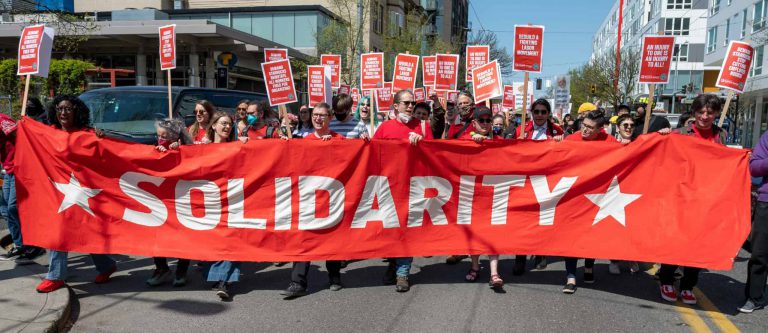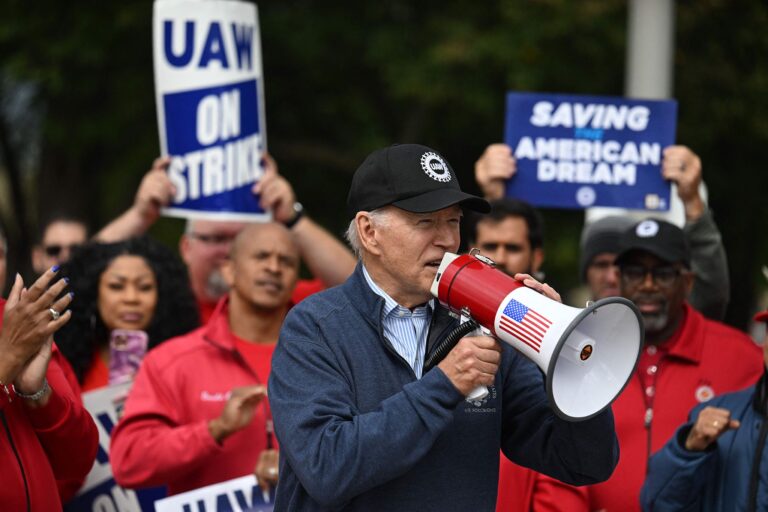
Catherine Fisk is the Barbara Nachtrieb Armstrong Professor of Law at UC Berkeley Law, where she teaches and writes on the law of the workplace, legal history, civil rights and the legal profession. She is the author of dozens of articles and four books, including the prize-winning Working Knowledge: Employee Innovation and the Rise of the Corporate Intellectual Property, 1800-1930, and Labor Law in the Contemporary Workplace. Her research focuses on workers at both the high end and the low end of the wage spectrum. She has written on union organizing among low-wage and immigrant workers as well as on labor issues in the entertainment industry, employee mobility in technology sectors, employer-employee disputes over attribution and ownership of intellectual property, the rights of employees and unions to engage in political activity, and labor law reform. She is the co-author, with UCI Law Professor Ann Southworth, of an innovative interdisciplinary casebook, The Legal Profession. Her current public service includes membership on the SEIU Ethics Review Board, the Board of Directors of the Wage Justice Center, and committees of the Law & Society Association. Prior to joining the founding faculty of UC Irvine School of Law, Fisk was a chaired professor at Duke Law School, and was on the faculty of the University of Southern California Gould School of Law and Loyola Law School in Los Angeles. She practiced law at a boutique Washington, D.C. firm and at the U.S. Department of Justice. She received her J.D. at UC Berkeley, and an A.B., summa cum laude, from Princeton University.
The many recent instances of police killing civilians have sparked calls to fire and prosecute the officers involved, and outrage at the police unions’ defense of accused officers and resistance to summary discipline. People rightly wonder why the union conceives of its obligation as protecting cops who appear to have engaged in clear misconduct rather than protecting the interests of “good” ones by allowing “bad” ones to be disciplined. Under this analysis, public employee unions are a major impediment to the kinds of reforms that would eliminate pervasive racism toward people of color and the urban poor.
For their part, many rank-and-file police officers see the union as an important protection against endemic arbitrariness in discipline. What appears to outsiders to be egregious police violence seems to some cops a justifiable reaction to dangerous suspects, bad management, and difficult working conditions. If police union officials have any private reservations, they feel constrained by their role to remain publicly silent, at the very least, and often describe criminal punishment of officers who kill as being politically motivated efforts to scapegoat individual officers for systemic problems.
Department of Justice investigations of police departments provide support for the views of both police union critics and police union leaders. The Department of Justice reports on the Chicago Police Department and the Baltimore Police Department both criticize certain contractual job protections as impediments to accountability for officers who use force in violation of the law or policy, but also fault managerial retaliation and management’s failure to use the power it has override collective bargaining agreements impeding the investigation of alleged police misconduct.
Proposals for reforming policing often entail creating mechanisms of institutionalized cooperation between rank-and-file and management to enhance detection of problems and accountability for unjustified violence. Unions are uniquely capable of creating such mechanisms but so far most police unions have resisted. Moreover, many of the topics that police reformers would want labor-management cooperation to cover – such as when officers draw their weapons, policing practices that officers think are unduly risky, and community-police cooperation, are topics that law in many states prohibits police unions from bargaining over.
Police collective bargaining agreements contain provisions governing economic terms of employment, including wages, hours, leaves of absence, pensions, health insurance, death benefits, and so forth. Many union contracts include specific provisions protecting police officers in discipline cases. But union contracts have little to say about how police officers actually do their job. This is in part because police unions, like other public and private sector unions in the 1960s, focused on gaining the power to bargain over economic issues, promotions, and discipline. But it is also because state legislatures, courts, and public employee relations boards insisted that it is the province of management to decide the mission and methods of public work, and the only things on which labor has a right to negotiate are pay, promotion, and discipline. That police unions adopted a narrow conception of the union’s role in collaborating with management about policing policy and tactics is not surprising, given the dominant conception of policing and the business unionism of the mid-twentieth century. The top-down hierarchy in police departments allowed for little input by the rank-and-file, and labor law and labor policy excluded employees from meaningful voice in the goals of the organization.
In an article just published, Dean Song Richardson and I propose a change to public sector labor law to provide a way for rank-and-file involvement in police reform. State public sector labor law could be amended to require police departments to meet and confer with labor representatives other than the certified police union. This modified form of minority union bargaining would, ideally, enable the minority of officers in a department who favor reform to discuss police practices even if the majority union prefers not to, or is legally prohibited from, negotiating over those practices.
The minority union could be any organization the officers choose to represent them. It might be an existing police officers’ affinity group (e.g., the local or national Black, Latino, women’s or other officers’ association), or a Black Lives Matter chapter, or any other group whom a significant number of officers in a department select. The scope of the duty to confer would encompass topics that are not mandatory subjects of bargaining under most state’s labor law, including use of force, policing techniques, and community relations. In other words, the department would have the duty to confer with the minority union over conditions of police employment other than terms in the existing contract.
This limit on the scope of minority union bargaining should avoid destabilizing existing bargaining agreements and the department’s and government’s budget expectations resting on them. It would reduce majority union opposition because it would prevent departments from cutting officer pay and benefits by trading off responsiveness to minority unions about policing practices and community relations for economic and job protections enjoyed by all officers.
Changing demographics of large urban police forces make it worth considering this form of minority bargaining as a way to deal with racialized violence in policing. As police departments have become more diverse, identity-based groups representing officers have gained members and influence. A diverse workforce is less likely to have a monolithic attitude toward issues, but it is necessary to have a mechanism to translate the diversity of perspectives into policymaking and implementation. Our proposal could make such groups more effective voices for reform.
A variety of issues would need to be addressed, depending on how radical a change in the existing system of representation a state chose to adopt. If officers chose not to belong to the existing union, in the twenty-two states that allow employers and unions to negotiate contracts requiring payment of agency fees to a recognized labor organization, would employees be obligated to pay an agency fee to the majority union or could they instead pay fees to their own? Would the majority union retain the duty of fair representation to all represented employees or only some duty to its members? Would the same collective bargaining agreement apply to all officers or only to the members?
For the moment, we propose a modest change because it is the only one that might conceivably be adopted (as legislative change is likely necessary), because it might allow beneficial changes without destroying the police unions that function well, and because incremental changes might allow governments to assess the impact and unintended consequences and make corrections before completely upending existing bargaining agreements and personnel practices. To prevent undue disruption to existing unions and bargaining relationships, the same principles of dues and fees as exist under current law would apply, as would the duty of fair representation and all the labor law that turns on the duty of fair representation. All that would change is the department would have the duty to meet and confer with a minority union provided it demonstrated a minimum level of support—say, membership of twenty percent or more of the officers in the department. The minimum threshold of support would, ideally, minimize the burden on police departments to meet and confer with too many groups and would provide incentives for groups of employees to band together to make their voices heard.
The purpose of this limited duty to confer is to create an institutional mechanism for police officers to be involved in policymaking and problem solving. That is why the scope of the new duty omits the wages and working conditions as to which public sector labor law currently imposes a duty to bargain. The point of minority union bargaining would be to give the rank-and-file a voice in policing policy without undermining the economic and other terms that management negotiated with the majority union. A limited form of minority union bargaining—a reform that has been advocated in other contexts by both the political left and the political right at various points in recent history—would create an institutional structure enabling diverse representatives of police rank-and-file to meet and confer with police management over policing practices. Although it might weaken the power of the majority union, as any form of minority- or dual-unionism necessarily does, it would facilitate rank-and-file support of the kinds of transparency, accountability, and constitutional policing practices that police reformers have been advocating for at least a generation.










Daily News & Commentary
Start your day with our roundup of the latest labor developments. See all
January 27
NYC's new delivery-app tipping law takes effect; 31,000 Kaiser Permanente nurses and healthcare workers go on strike; the NJ Appellate Division revives Atlantic City casino workers’ lawsuit challenging the state’s casino smoking exemption.
January 26
Unions mourn Alex Pretti, EEOC concentrates power, courts decide reach of EFAA.
January 25
Uber and Lyft face class actions against “women preference” matching, Virginia home healthcare workers push for a collective bargaining bill, and the NLRB launches a new intake protocol.
January 22
Hyundai’s labor union warns against the introduction of humanoid robots; Oregon and California trades unions take different paths to advocate for union jobs.
January 20
In today’s news and commentary, SEIU advocates for a wealth tax, the DOL gets a budget increase, and the NLRB struggles with its workforce. The SEIU United Healthcare Workers West is advancing a California ballot initiative to impose a one-time 5% tax on personal wealth above $1 billion, aiming to raise funds for the state’s […]
January 19
Department of Education pauses wage garnishment; Valero Energy announces layoffs; Labor Department wins back wages for healthcare workers.